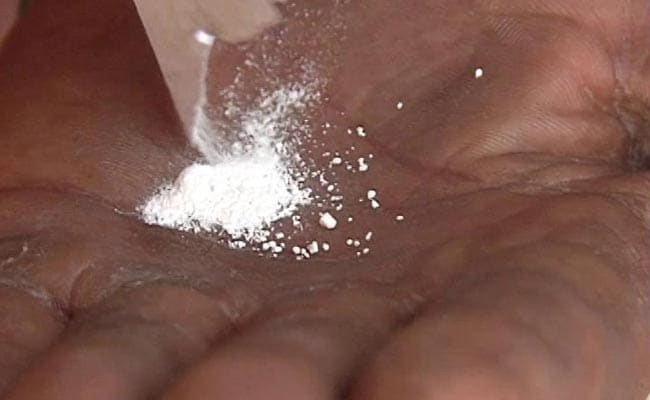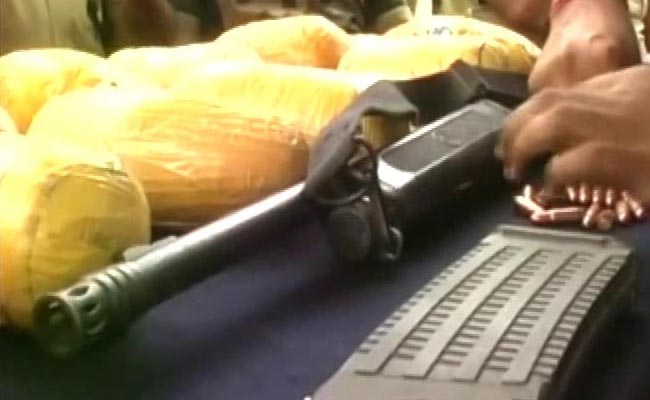Packed in plastic bags and camouflaged in mud, transporting a kilo of heroin across the border fetches Rs 50,000 a lucrative proposition especially for the unemployed.
- Smuggling of heroin along India-Pak border a lucrative business
- Transporting a kilo of heroin across the border fetches Rs 50,000
- Money is not for transporting the drugs but for the risk involved: Source
Did our AI summary help?
Let us know.
Chandigarh:
In villages along the India-Pakistan International Border, a thriving form of employment is to ferry drugs between the two countries. Packed in plastic bags and camouflaged in mud, transporting a kilo of heroin across the border fetches Rs 50,000, a lucrative proposition especially for the unemployed.
As a political war of words rages over the drug menace in Punjab, NDTV travelled to several of these border towns to investigate the extent of problem. A former smuggler and a resident of the border town, admitted to have received the said money for the operation.
"Many people in the villages do this job, what else will they do," he said.
 The money is however not for transporting the drugs but for the risk involved. Many smugglers have been caught and even shot dead by the Border Security Force or BSF jawans patrolling along the International Border.
The money is however not for transporting the drugs but for the risk involved. Many smugglers have been caught and even shot dead by the Border Security Force or BSF jawans patrolling along the International Border.
The 34-year-old however alleged that sometimes even the guards can be bribed.
"We try to strike a deal with the guards to look the other way. It does not always work and risks are high. Recently some people were also shot while trying to cross over, but that's the nature of our work," he said.
It's mostly heroin which originates in Afghanistan and parts of Pakistan, and comes to India. The rate varies between Rs 4,000 to Rs 4,400 per 1 gram depending on the proximity to the International border and the dealer.
 Smugglers have been known to use ingenious methods to get drugs across into India. After a deal is struck with suppliers on the Pakistani side, drugs are first wrapped in plastic and then covered in jute bags to blend in with the mud. These bags are then literally chucked across the barbed wire border fence at pre-destined points. At times, the drugs, in separate kilo packs, are stuffed inside PVC bags which are shoved and shovelled through from the other side of the barbed wire fencing.
Smugglers have been known to use ingenious methods to get drugs across into India. After a deal is struck with suppliers on the Pakistani side, drugs are first wrapped in plastic and then covered in jute bags to blend in with the mud. These bags are then literally chucked across the barbed wire border fence at pre-destined points. At times, the drugs, in separate kilo packs, are stuffed inside PVC bags which are shoved and shovelled through from the other side of the barbed wire fencing.
While India has set up a barbed wire fence almost throughout the International Border in Punjab, Pakistan has not set up any fence.
"Smugglers try and innovate but we also try and stay a step ahead of them. Through proper channels, we have also tried to inform Pakistan to increase control on their side, but that's not happened," said DIG, Kunwar Vijay Pratap Singh.
The increased vigilance on the Indian side seems to be paying off. The seizure of heroin by the Army has gone up from 67 kg in 2011 to 344 kg in 2015 in Punjab.
As a political war of words rages over the drug menace in Punjab, NDTV travelled to several of these border towns to investigate the extent of problem. A former smuggler and a resident of the border town, admitted to have received the said money for the operation.
"Many people in the villages do this job, what else will they do," he said.

The rate varies between Rs 4,000 to Rs 4,400 per 10 gm depending on the proximity to the International Border and the dealer.
The 34-year-old however alleged that sometimes even the guards can be bribed.
"We try to strike a deal with the guards to look the other way. It does not always work and risks are high. Recently some people were also shot while trying to cross over, but that's the nature of our work," he said.
It's mostly heroin which originates in Afghanistan and parts of Pakistan, and comes to India. The rate varies between Rs 4,000 to Rs 4,400 per 1 gram depending on the proximity to the International border and the dealer.

It's mostly heroin which originates in Afghanistan and parts of Pakistan that comes to India.
While India has set up a barbed wire fence almost throughout the International Border in Punjab, Pakistan has not set up any fence.
"Smugglers try and innovate but we also try and stay a step ahead of them. Through proper channels, we have also tried to inform Pakistan to increase control on their side, but that's not happened," said DIG, Kunwar Vijay Pratap Singh.
The increased vigilance on the Indian side seems to be paying off. The seizure of heroin by the Army has gone up from 67 kg in 2011 to 344 kg in 2015 in Punjab.
Track Latest News Live on NDTV.com and get news updates from India and around the world

